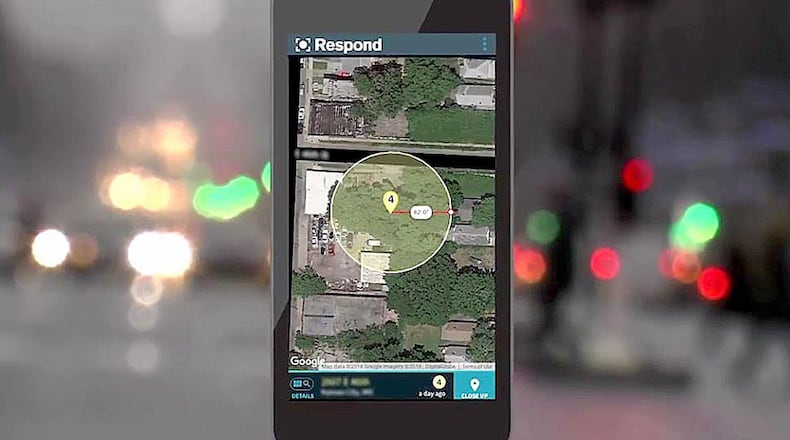“Was that gunfire? Should I call the police?”
When gunshots are fired, not everyone calls police. Some question whether it was really gunfire at all. While others assume someone else has called 911.
But with new technology activated this week in Atlanta, officers are alerted immediately when shots have been fired. The ShotSpotter devices use sensors on utility poles and on top of buildings to pick up the sound of gunshots and alert police within seconds — even before someone can call 911.
Atlanta police Deputy Chief Lane Hagin said the devices send information to officers’ phones and patrol cars/
“If you have a gunshot we have different pods around and they alert and so you’ll get an alert to your device,” Hagin said.
The technology is already being used in dozens of cities and on college campuses across the country. As part of a pilot program funded by a partnership with Georgia Power and the Atlanta Police Foundation, 100 devices have been installed in Atlanta, Hagin told Channel 2 Action News.
“We looked at where we’re having the highest number of shots fired, random gunshots,” Hagin said.
Police don’t want to reveal the exact locations of the ShotSpotter devices. But the technology is being tested in the Vine City and English Avenue communities, along with the Atlanta University Center. There are already 200 cameras in many of the same areas, and investigators will be able to use the technology together.
“When we get an alert with ShotSpotter, we want the cameras to turn and get a visual on that location,” Hagin said.
An APD spokesman said the devices have already been put to use alerting officers to shots fired.
More than 90 cities currently are using ShotSpotter, including Savannah. The University of West Georgia in Carrollton started using the technology in October. Within days, the sensors detected two separate incidents of gunfire near campus. Carrollton Police arrested a man who allegedly fired multiple gunshots at a liquor store and a woman accused of shooting at her husband.
According to the ShotSpotter company, the technology is proving to be very effective in major cities.
“The one technology that has made the most difference in Chicago’s reduction in gun violence in the last 12 months has been ShotSpotter,” Eddie Johnson, the city’s police superintendent, says in a quote on the company’s website. “It’s a game-changer.”
But not everyone is a fan. Some see the devices’ microphone as an invasion of privacy.
“There haven’t been any studies showing it’s necessarily effective,” said Jeramie Scott, the Director of the Electronic Privacy Information Center in Washington, D.C. “ShotSpotter is a form of Big Brother. The sensors can record conversations.”
Atlanta police say they are focused on detecting gunfire, not eavesdropping.
“We’re not looking at arguments,” Hagin said. “We’re not looking at what people say. We’re looking for gunshots.”
HOW SHOTSPOTTER WORKS
• The software filters out background noise, such as traffic or wind, and listens for impulsive sounds characteristic of gunfire
• After the software determines the location of the sound source, it determines if the sound is likely to be gunfire
• Notifications are triggered when the incident is confirmed as gunfire
• Gunfire alerts are pushed to ShotSpotter mobile apps, desktop and browser apps
• The time from initial gunfire to alert takes place in less than 60 seconds
Source: ShotSpotter website
About the Author
